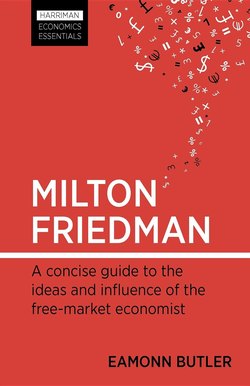Читать книгу Milton Friedman - Eamonn Butler - Страница 12
На сайте Литреса книга снята с продажи.
Worldwide Influence
ОглавлениеAlan Greenspan was right: the change in direction that has resulted from Milton Friedman’s powerfully original work is indeed remarkable. For most of Friedman’s career as a professional economist, from the 1930s to the 1980s, the world was dominated by the ideas of government planning, management and control. But at last a new set of ideas started to spread – Milton Friedman’s ideas of free markets, open trade, freedom and capitalism. Though these ideas remain controversial to many, they have become part of the everyday life of billions of the world’s citizens.
On the fall of the Berlin Wall and the ending of Soviet occupation in Eastern Europe, the small republic of Estonia embarked on a comprehensive reform programme that lifted the prosperity of its citizens to previously undreamed-of levels. Within a decade it had become the most internet-wired country in the world; state industries were privatised, business taxes were abolished, personal taxes were slashed, controls were swept away. Estonia became the Baltic Tiger, a model to which other ex-Soviet countries aspired.
Mart Laar, Estonia’s prime minister at the time (1992–94 and 1999–2002), explained the source of his radicalism as he received the 2006 Milton Friedman Prize for Advancing Liberty. In the Soviet era, Western economics books were unobtainable. The only one he could get hold of was Milton Friedman’s Free to Choose (1980). And luckily, he joked, he had none of the West’s mainstream economists around to assure him that these ideas could not possibly work. Facing 1,000% inflation, a 30% drop in the economy and 35% unemployment, he simply adopted Friedman’s ideas. They worked far better than anyone expected.
“Only a crisis – actual or perceived – produces real change. When that crisis occurs, the actions that are taken depend on the ideas that are lying around. That, I believe, is our basic function: to develop alternatives to existing policies, to keep them alive and available until the politically impossible becomes the politically inevitable.”
– Milton Friedman, Capitalism and Freedom, Preface to 1982 edition
The passing of the revolutionary communist Mao Zedong saw China opening up to Friedman’s economic thinking too. In 1980, just over a year after the reformist Deng Xiaoping became China’s ‘paramount leader’, Friedman was invited there to lecture on the use of market mechanisms within a planned economy. Today, China’s adoption of market mechanisms has seen it storming up the league table of world economies, and has improved the lives of hundreds of millions of its citizens.
Meanwhile, a billion people in India are enjoying another huge economic boost, following the country’s economic liberalisation of 1991, which ended price controls, cut taxes, abolished public monopolies and scrapped regulations. India’s free-market reforms made it one of the fastest-growing economies in the world, and brought its people rising literacy and life expectancy. The people of India and China may not realise it, commented Nobel economist Gary Becker, but “the person they are most indebted to for the improvement of their situation is Milton Friedman.”
On the other side of the world, Friedman’s influence can also be seen in Chile. After the military coup that ended the socialist government of Salvador Allende, Friedman accepted an invitation to lecture there on the merits of economic freedom; and he wrote to the military dictator, Augusto Pinochet, outlining a programme to end the country’s hyperinflation and establish a market economy. Pinochet promoted a number of young Chilean economists – dubbed the Chicago Boys – who had studied at the University of Chicago, where Friedman was a professor. They cut import tariffs, replaced the failing state pension system with one based on personal savings and accounts, privatised farms, stabilised the currency and liberalised the financial sector. Their reforms turned Chile’s economic crisis around, making it one of Latin America’s most thriving economies.
